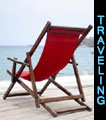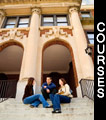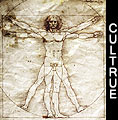Meeting People
When meeting people for the first time it is appropriate to wait to be introduced. You will generally be introduced to the oldest person first followed by the women.
The exchange of business cards is a common practice when first meeting someone. Status is important in the Italian culture and it is common to list any titles and/or education degrees you hold on your business cards.
.
.
.
Physical Greetings
When greeting someone a handshake accompanied by a "Pleased to meet you" is appropriate. When departing be sure to shake everyone's hand, a general group wave as is often done in the United States is not looked on favorably.
An "air kiss" is an appropriate greeting once you have established a relationship with someone.
Physical Space
Italians stand much closer to one another than Americans do and it is common for men to walk down the street arm and arm and also women to walk down the street arm and arm.
Eye Contact
Intense direct eye contact is common, looking away is a sign of disinterest and/or that you are behaving rude.
Good Topics of Discussion
Food, wine, soccer (the national pastime), politics (if you know what you are talking about), music, philosophy and current events.
Bad Topics of Discussion
Inquiring about private family matters, personal income, stereotypes, World War II and Vatican politics. Also the common American question "what do you do?" is considered rude and too personal.
Communication Style
Moments of silence are rare in Italy and repeated interruptions signify interest.
Whistling and winking at women is meant as a compliment and is not used in a degrading way. If a woman is interested she will acknowledge the whistlers with eye contact, if she is not she will ignore them.
Italians often gesture with their hands and one does not converse with their hands in their pockets. Italians place great importance on maintaining a "Bella Figura" (Beautiful Figure/ Image) and slouching and leaning against things is just not done.
Waiting in Line
Lines do not exist in Italy, do not be surprised if someone just walks up to the counter and is served before you, despite the fact that you were next and have been waiting in "line" for the past 20 minutes.
Walking
The evening "passeggiata" is a common occurrence in Italy. Strolling the streets, seeing who is out and catching up with friends is a nightly occurrence in Italy.
Shopping
Customer service is not as "in your face" as it is in the United States. Generally a salesclerk will ignore you until eye contact is made signaling service is required.
Public Transportation
The easiest way to catch a taxi cab is at a taxi stand.
On public transportation it is customary for the younger to give up their seats to the older and men to give up their seats to women.
Tipping
The tip is generally already included in the price at a restaurant. A standard tip for a taxi driver is 10 percent. Bellmen usually receive 1 Euro per bag.
Appropriate Dress
In general Italians dress much more formally than Americans. Italians value "quality" in their clothing and are much more likely to own 2 very nice expensive suits than 6 decent cheaper suits. Black and muted colors are common in combination with brighter colored accessories.
Meal Time
Breakfast is generally from 8 to 8:30 AM
A standard Italian breakfast is coffee (espresso is generally served after dinner) with a croissant or a couple of cookies.
Lunch is generally served from 1 to 3 PM
In the south lunch is the biggest and longest meal of the day, in the North it is often the biggest meal of the day but during the business week it does not last as long as it does on the weekend. A typical lunch includes soup, bread and olive oil, a main meal and/or soup, salad and a desert of fruit. Wine and sparkling mineral water usually accompanies the meal.
Dinner is generally served from 8 to 10 PM
If the main meal of the day was lunch, then dinner is often a light affair taken at home. If however it was not a typical dinner is quite elaborate. Formal Italian meals consist of: antipasto (such as proscuitto, bruschetta, or fruit), soup, pasta, main dish (usually meat), salad, cheese, desert, fruit and an espresso. Wine is also commonly taken with dinner.
Table Manners
The Italians do not switch their knife and fork as people do in the States. The fork remains in the left hand and the knife in the right hand.
Placing your utensils down on your plate signifies to wait staff that you are finished.
When not using your utensils your hands should be kept visible above the table.
Dishes are passed to the left.
To get a waiters attention you should make contact, waving your hand or calling out is considered to be rude.
Often times in an informal restaurant you will be seated at a table with a stranger, if this is the case conversation is not expected.
Who Pays?
In general the person who does the inviting also does the paying, although the guest is expected to protest. When a woman is seated at a table with men the men (despite a woman's protest) will always pick up the bill.
Punctuality
The further south you go the less importance is placed on being on time. For social events being a half an hour to an hour late is common. When people are late resist the American temptation to request the reason. Lateness is generally because a person was involved in obligations that involved superiors, family or old friends (and it would have been rude to cut it short).














